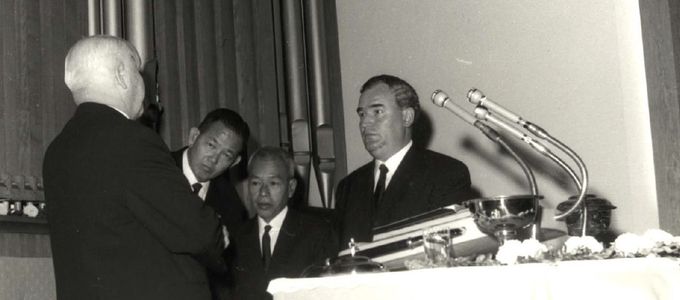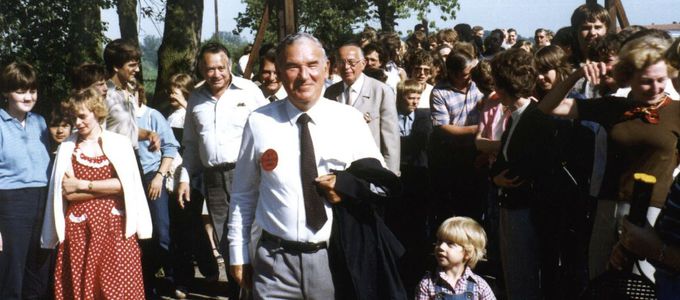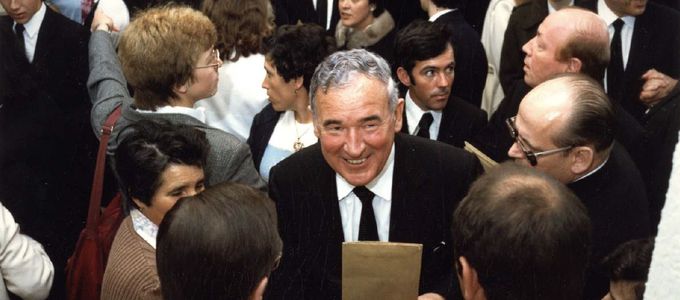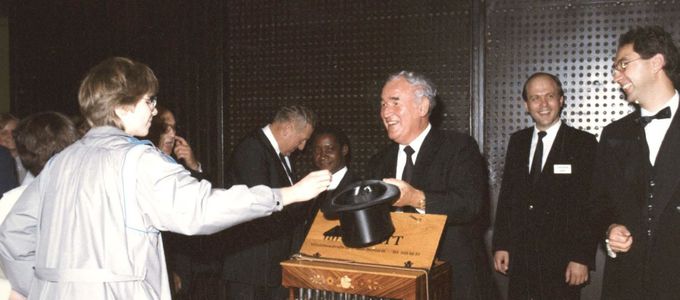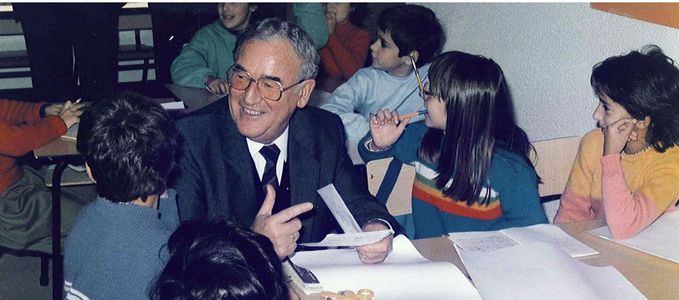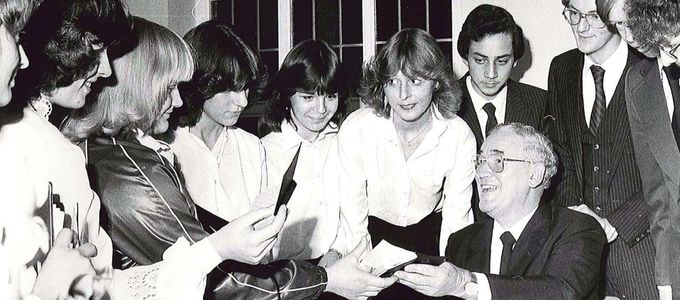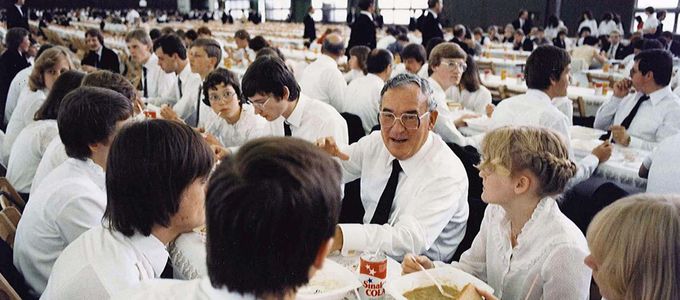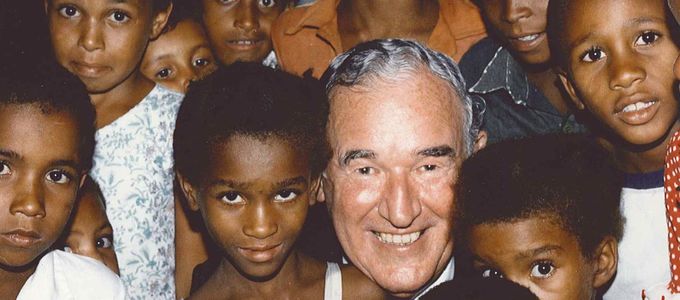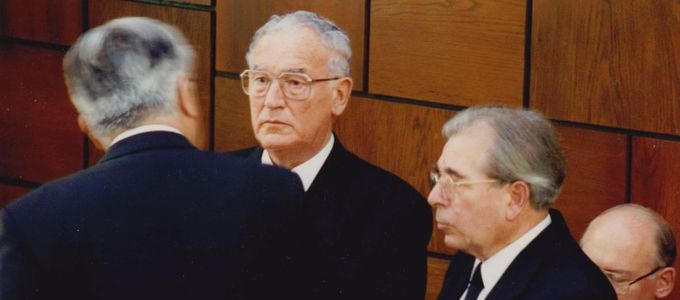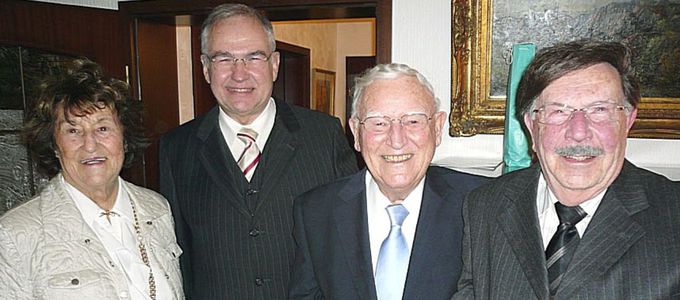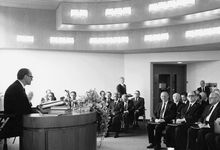Bridge-builder between churches, cultures, and generations
There has been a lot of talk about reconciliation over the past weeks. One man in particular was instrumental in quietly paving the way for this. Fifty years ago today, he was ordained into the ministry that preaches reconciliation: Hermann Engelauf.
“No harsh words, no reproaches, and no judgement of the other side!” These were Hermann Engelauf’s words when he commissioned the compilation of a historical account of the New Apostolic Church of the Rhineland (Germany). Relations were still very frosty between the United Apostolic Church and the New Apostolic Church in Germany at the time. The two had split over irreconcilable differences in the 1950s. Already in the 1980s District Apostle Engelauf, who led the New Apostolic Church North Rhine-Westphalia at the time, had gladly followed Chief Apostle Hans Urwyler’s proposal to go and approach the apostolic members of the other denomination.
Cornerstone laid for a new beginning
When historical assessments were presented at an information evening in December 2007, deep-seated resentments came to the fore. Hermann Engelauf and his friend, Werner Kuhlen—the son of the District Apostle who was excommunicated from the Church in the 1950s—were the quiet and dogged bridge builders. The District Apostle, who was already retired at the time, asked Chief Apostle Wilhelm Leber to visit Gerda and Werner Kuhlen. That Sunday afternoon, 30 March 2008, the foundations were laid for the resumption of relations between the two denominations.
Hermann Engelauf would not live to see the most exciting development, however: the signing of the Statement of Reconciliation on 29 November 2014. He passed away on 15 October 2011. Yet, reconciliation came about as a result of the understanding that Hermann Engelauf and Werner Kuhlen had worked so doggedly on to build.
A model of reconciliation
Hermann Engelauf set an example for what it means to be an Apostle, the ministry of reconciliation (2 Corinthians 5: 18). “The Apostle ministry is the ministry of reconciliation,” Chief Apostle Jean-Luc Schneider had said following the signing of the Statement of Reconciliation between the United Apostolic Church and the New Apostolic Church. He said that he considers it his commission to carry the idea of reconciliation into the Church and make it a focal point. “I advise everyone to make a personal commitment and to live a life of reconciliation.”
Hermann Engelauf’s efforts to build bridges did not stop at the reconciliation between the two apostolic denominations, but was also evident among the members and ministers of the New Apostolic Church. Chief Apostle Leber described him as someone who radiated pure warmth and kindness.
He looked out for all generations
The District Apostle stole his way into the hearts of the senior members when he called them together for the first central divine service for seniors and addressed them as the backbone of the congregations. Also at the Day of the Youth services he built bridges, and abandoned the strict form of worship in the afternoon in favour of an afternoon of music and presentations. It was on his initiative that the seminar centres were built in Quelle and Hochdahl.
Hermann Engelauf also had a heart for the children. He organized the first Children’s Day in North Rhine-Westphalia and invited Chief Apostle Richard Fehr. He also saw to it that the children were regularly invited to the recreation centres in Schöller and Darfeld, which had been purchased especially for this purpose.
It was his big heart that made it easy for him to approach people of all cultures despite language barriers. This is how the brothers and sisters in Portugal and other Portuguese-speaking countries that were entrusted to him got to know him. Wherever Hermann Engelauf worked, words expressed by Chief Apostle Leber applied: “I don’t know any other person who was so taken up with the work of God!”
Article info
Author:
Date:
Keywords:
Alfred Krempf
22.10.2016
ordinations,
Apostle,
Denominations,
People/Personalities


